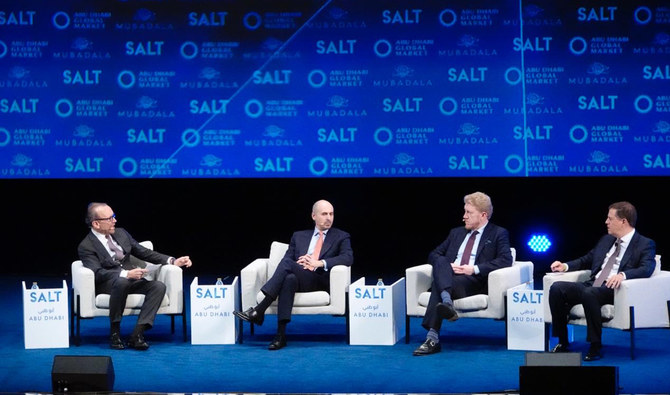ABU DHABI: Iraq’s oil reserves had the potential to exceed those of Saudi Arabia, a top Middle East energy company chief has told the region’s first SALT conference.
In spite of years of corruption, a lack of infrastructure, and the five-year war on Daesh in Iraq, the country had managed to increase its production of oil from 1.5 million barrels per day (bpd) to 5 million, Crescent Petroleum’s CEO Majid Jafar revealed.
Speaking in Abu Dhabi on a panel session discussing power dynamics in the energy sector, he addressed Iraq’s position on oil production and the US’ recent move toward energy “independence.”
Referring to the rate of Iraq’s oil production today, he said: “This gives you some indication of the reserve potential in Iraq, which I believe can exceed Saudi Arabia’s.” And he added that parts of the country still remained “unexplored.”
To utilize the country’s full potential in the energy sector, he believed that improving the investment climate for the private sector was essential.
Jafar said this could be achieved by addressing the demands voiced in recent protests lead by Iraq’s youth, adding that “young people have had enough.”
Among their demands were the need for better services, electricity, employment opportunities and a governing system free of corruption and sectarian politics.
Yet, despite the instability, Crescent Petroleum was still optimistic. “As a group, we have invested $3 billion (SR11.25 billion) over the last 10 years, and the rate of investment is increasing going forward.”
Jafar pointed to the Middle East and North Africa region’s steep oil wealth, implying that more could be done to raise competition in the global energy market. He cited new reforms, such as Saudi Aramco’s partnership with the private sector, as a step in the right direction, considering that the region was home to five of the top 10 oil-producing countries.
However, he highlighted that in recent times the Middle East oil and gas industry had given up a significant amount of its market share to its American counterparts.
While the US moved toward “self-sufficiency,” Jafar believed the country’s “inter-dependence” would grow.
“Being an exporter of oil, you start to worry about the markets,” he said, making a projection on the impact of recent changes on the US economy. “With the US becoming one of the biggest producers in the world, its economy in terms of overall GDP does better if the oil prices are higher, and that changes all the calculations.”
Dr. Francisco Blanch, global head of commodities research at Bank of America Merrill Lynch, highlighted that while the US had become “energy independent,” investors had lost a significant amount of funds to “supply the capital to make it happen.”
Blanch’s forecast was that the US would not continue to grow at the pace it had been doing in recent years. “I think investors are waking up to realize that Shell is a marginal-cost business.”
Supporting Jafar’s observations, he agreed that the US had become more interdependent on exports and imports. He pointed out that today, the US imported 6.5 million barrels of oil, and exported 2.5 million bpd.
“I think the capital market has become more skeptical about capital being allocated to the energy sector,” said Blanch, adding that the next five to 10 years would witness a focus on technology and healthcare.
Examining the geopolitical situation in the Arab region, panelist R. J. Johnston, executive adviser and managing director for global energy and natural resources at Eurasia Group, described the energy sector as a “geopolitical-driven story.”
He cited the drone and missile attacks earlier this year on two Saudi Aramco oil sites in the Eastern Province, pointing out the disruptions in supply did not generate an expected response and impact on oil prices.
“This maybe suggests something about how the geopolitics of the region are changing. Even with sanctions on Iran and the attack against the Aramco facilities, the world is more focused on a different kind of geopolitics; more on the demand side,” said Johnston.
He also referenced the upcoming US elections as well as other problematic structural trends in the region and around the world, such as the protests seen in the Middle East, Western Europe, and Hong Kong, as factors that created uncertainty for the growth of the global market.
He added that in the age of US President Donald Trump, America was “less committed to the region” than it had been in the past, a situation that would create a new set of realities.

































